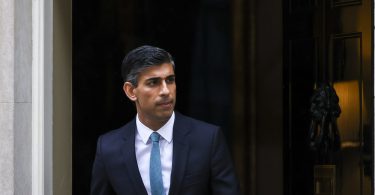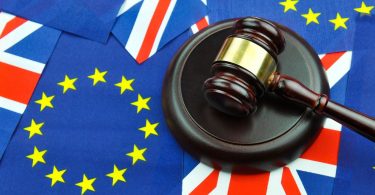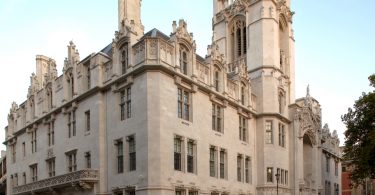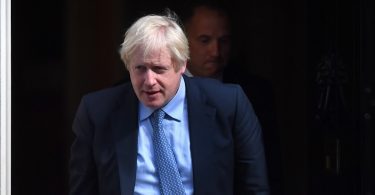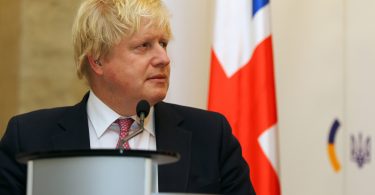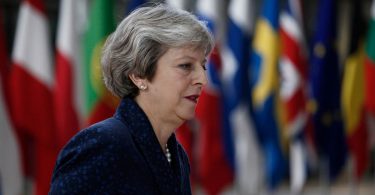A shortened version of this article by Lawyers for Britain Chairman Martin Howe QC was published in the Sunday Telegraph on 28 February 2021.
This year on 1 January, EU laws ceased to apply in most of the United Kingdom. But not so in Northern Ireland. A wide range of EU laws still apply there, and the writs of the European Court of Justice and the European Commission still run. Customs controls and regulatory inspections have been set up to create a new border down the Irish Sea, dividing one part of the United Kingdom from the rest for the first time since the Act of Union between Great Britain and Ireland in 1800.
That Act, like the 1709 Act of Union between England and Scotland before it, got rid of customs duties and prohibitions on the movement of goods between the parts of the UK. It also said that “The subjects of Great Britain and Ireland shall be on the same footing in respect of trade and navigation, and in all treaties with foreign powers the subjects of Ireland shall have the same privileges as British subjects.”
The 1800 Act of Union was still part of the law governing trade between Great Britain and Northern Ireland until 1 January, but it was over-ridden when the Northern Ireland Protocol came into force. That Protocol, be it remembered, was negotiated in 2019 under pressure when Boris Johnson had only recently become Prime Minister, did not have a majority in Parliament, and was under siege from Remainer MPs, a partisan Speaker, and judges, all of whom seemed intent on undermining the country’s negotiating position against the EU.
Against that background, the Protocol was a big improvement on Theresa May’s utterly disastrous backstop agreement, which would have kept the whole country chained inside a customs union with the EU with no right to leave. But that said, the Protocol is deeply flawed and I had hoped to see it superseded by new arrangements as part of the trade deal with the EU concluded last Christmas Eve.
Unfortunately the trade deal left the Northern Ireland Protocol untouched. Its huge flaws are now becoming apparent to all, with massive disruption to trade caused by the new Irish Sea border. The EU’s intransigence during the trade deal talks has worsened the Protocol’s impact because the EU has refused to give the same recognition to UK rules, inspections and certifications as it gives in its trade treaties with other partners. This automatically makes GB to NI trade more difficult because the Protocol applies EU laws, customs procedures and regulatory checks to that trade, just as if the goods were being imported into France.
But even worse, the Protocol imposes the laws of the EU single market for goods internally within Northern Ireland, and gives the Commission and the ECJ full jurisdiction to enforce and interpret those laws. And these are not just boring widget regulations. For example, EU laws on medicines are included. After the end of a 12 month grace period granted by the EU, it will be the EU and not the UK government or Parliament which controls what medicines the people of Northern Ireland are or are not allowed to receive.
The distinguished constitutional expert Vernon Bogdanor wrote in the Telegraph (5 Feb 2021) that the fundamental problem with the Protocol is constitutional not economic. I agree. It subjects the people of a part of our country to a slew of laws on which they have no right to vote, and which are made, amended, interpreted and enforced on UK territory by a foreign power in whose councils no UK citizens are present.
The Protocol’s supposed purpose is to allow an open land border to exist between Northern and Southern Ireland, while preventing goods from leaking into the EU market which do not pay EU tariffs or comply with EU single market laws.
The trade passing across the Irish Sea between Great Britain and Northern Ireland is about 5 times the trade passing North-South over the Irish land border. It is madness trying to impose highly damaging controls unnecessarily on this huge volume of trade, instead of focussing efforts on controlling the much smaller volume of North South trade through away-from-the-border mechanisms.
EU leaders have repeatedly claimed that any form of controls on the Irish land border would breach the Belfast (Good Friday) Agreement and threaten the Irish peace process – although the Agreement itself does not contain any clause which actually specifies an open border. But the EU has chosen to pray in aid the supposed danger to the Irish peace process – and potentially endager that process – in order to promote its own interests. The EU seeks to keep Northern Ireland as a captive market for EU exporters by using customs controls, tariffs and regulatory barriers to make life as difficult as possible for goods exports from Great Britain.
The EU’s hypocrisy was nakedly exposed last month when Ursula von der Leyen suddenly announced restrictions on the export of vaccines from the EU into Northern Ireland, creating the very land border in Ireland which supposedly would endanger the peace process. At the same time it opened many people’s eyes to the EU’s total disregard for the interests of the people of Northern Ireland over whom the Protocol gives them enormous powers.
The Commission used Article 16 of the Protocol to suspend unilaterally the Protocol’s open land border requirement, citing “serious societal difficulties due to a lack of supply of vaccines” as justification.
But where the EU has led, the UK can follow. Article 16 allows the Protocol be unilaterally suspended either where it is causing “societal difficulties” as cited by the Commission, or where it is causing a “diversion of trade”.
There is now massive evidence that the Protocol, coupled with the EU’s intransigent attitude to maximising bureaucratic controls and difficulties, is causing a large diversion of trade away from the Great Britain to NI route. Supermarkets in NI are sourcing goods from the Republic or elsewhere in the EU, while Amazon is changing its arrangments to distribute parcels into Northern Ireland via a warehouse in Dublin.
To correct this diversion of trade, the UK should apply the free movement of goods rules in the recently passed UK Internal Market Act in full to Northern Ireland. Any goods legally on the market in England, Wales or Scotland could then be imported there without forms or certifications required by EU law, or without having to print an EU address on the labels. This unilateral action would provide a firm basis for negotiating with the EU the permanent replacement of this deeply flawed Protocol with sensible cooperative procedures for controlling the flow of goods across the Irish land border by away-from-the-border means.


